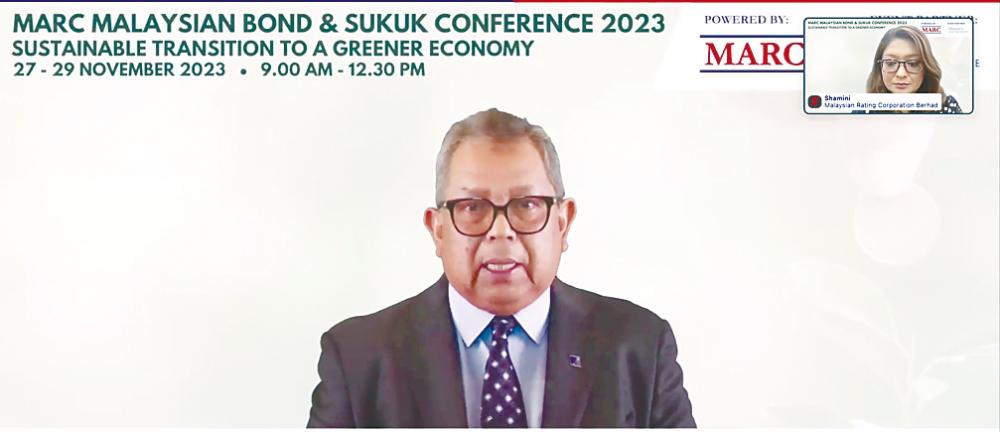PETALING JAYA: Malaysia has witnessed an upswing in sustainable and responsible investment sukuk issuances in the renewable energy sector, contributing to the bond and sukuk market’s total outstanding value of RM2 trillion as at October 2023.
Securities Commission Malaysia (SC) executive chairman Datuk Seri Dr Awang Adek Hussin said more than 50% of total SRI sukuk issuances in Malaysia are in the renewable energy space.
“With a total outstanding value of RM2 trillion as at Oct 31, 2023, it (bond and sukuk market) represents more than 50% of the Malaysian capital market,” he said in his address at the virtual Malaysian Rating Corporation Bhd’s Malaysian Bond and Sukuk Conference 2023: Sustainable Transition To A Greener Economy today.
For this year, up to October, three SRI sukuks with a total programme size of RM2.2 billion have been launched.
“TNB Power Generation’s recent issuance of a RM2 billion SRI sukuk for its renewable energy terminal stands out as the largest, underlining Malaysia’s commitment to financing projects contributing to sustainability and green energy,” said Awang Adek.
He added that Malaysia is the largest sukuk market with 35% of global outstanding sukuk, ahead of Saudi Arabia and Indonesia.
“The country also remains the regional leader in sustainable and responsible investment sukuk,” he said.
Awang Adek said Malaysia accounts for 27% of the US$41 billion (RM191.8 billion) total issuance of Asean green, social and sustainability bonds and sukuk.
“Since the launch of the SRI Sukuk Framework in 2014, the cumulative issuances of SRI sukuk have reached about RM27 billion, with over RM18 billion recognised under the SRI Sukuk Framework and Asean green, social and sustainability bond standards,” he said.
Awang Adek highlighted that Malaysia leads in SRI sukuk regionally as the country issued the first sovereign US dollar sustainability sukuk in 2021 with 6.4 times bid-to-cover ratio.
“This was despite significant spikes in interest rates globally and gradual reopening of the economy,” he said.
However, Awang Adek said, to reach net zero emissions by 2050, annual clean energy investment worldwide will need around US$4 trillion by 2030. Malaysia alone needs RM1.3 trillion by 2050.
“Considering the huge financing requirement, the financial sector, particularly the capital market, must continue to facilitate financing and investments in these key areas to support the government’s priorities.
“The Malaysian bond and sukuk market, one of the most developed and largest markets in the region, should be well positioned to provide crucial financing towards productive and socially responsible initiatives,” he added.









